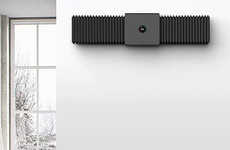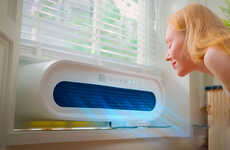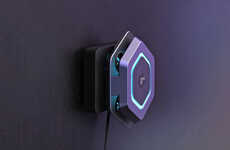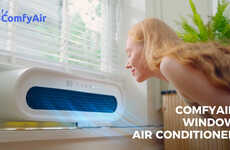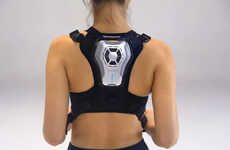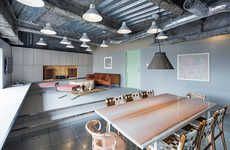This Smart AC Unit Adjusts the Temperature Based on Who is in the Office
Ellen Smith — September 25, 2017 — Art & Design
References: ieeexplore.ieee.org & scmp
Researchers from Polytechnic University have implemented a smart AC unit into Hong Kong office buildings that adjusts the room's temperature based on information it gathers from employees.
In-office temperature disputes are a common point of frustration at most workplaces, prompting the design of this system, which creates a suitable environment for the majority of the office's occupants. Employees are asked to submit their height, weight and gender to an accompanying smartphone app, while a data collection platform called Personalised Thermal Comfort Platform uses an algorithm to calculate an ideal medium that best suits the majority of the employees. In addition to employee comfort, this smart cooling system is responsible for reducing electricity consumption in commercial buildings by 18 percent.
The system offers a unique solution to both energy conservation and employee comfort.
In-office temperature disputes are a common point of frustration at most workplaces, prompting the design of this system, which creates a suitable environment for the majority of the office's occupants. Employees are asked to submit their height, weight and gender to an accompanying smartphone app, while a data collection platform called Personalised Thermal Comfort Platform uses an algorithm to calculate an ideal medium that best suits the majority of the employees. In addition to employee comfort, this smart cooling system is responsible for reducing electricity consumption in commercial buildings by 18 percent.
The system offers a unique solution to both energy conservation and employee comfort.
Trend Themes
1. Smart AC Units - Disruptive innovation opportunity: Develop advanced smart AC units that use personalized data to adjust temperature and improve occupant comfort.
2. Personalized Thermal Comfort Platform - Disruptive innovation opportunity: Create platforms that combine personalized data with algorithms to optimize room temperatures for a majority of occupants, reducing energy consumption.
3. Energy-efficient Commercial Buildings - Disruptive innovation opportunity: Design sustainable and energy-efficient commercial buildings that integrate smart AC units to reduce electricity consumption and create comfortable work environments.
Industry Implications
1. Smart Home Technology - Disruptive innovation opportunity: Expand smart home technology to include smart AC units that can adjust temperature based on personalized data, improving user experience and energy efficiency.
2. Data Analytics - Disruptive innovation opportunity: Develop data analytics platforms and algorithms that can process personalized data to optimize room temperatures in various industries, improving comfort and reducing energy consumption.
3. Sustainable Architecture and Design - Disruptive innovation opportunity: Combine sustainable design principles with smart building technologies, such as smart AC units, to create energy-efficient and comfortable commercial buildings.
1.4
Score
Popularity
Activity
Freshness
